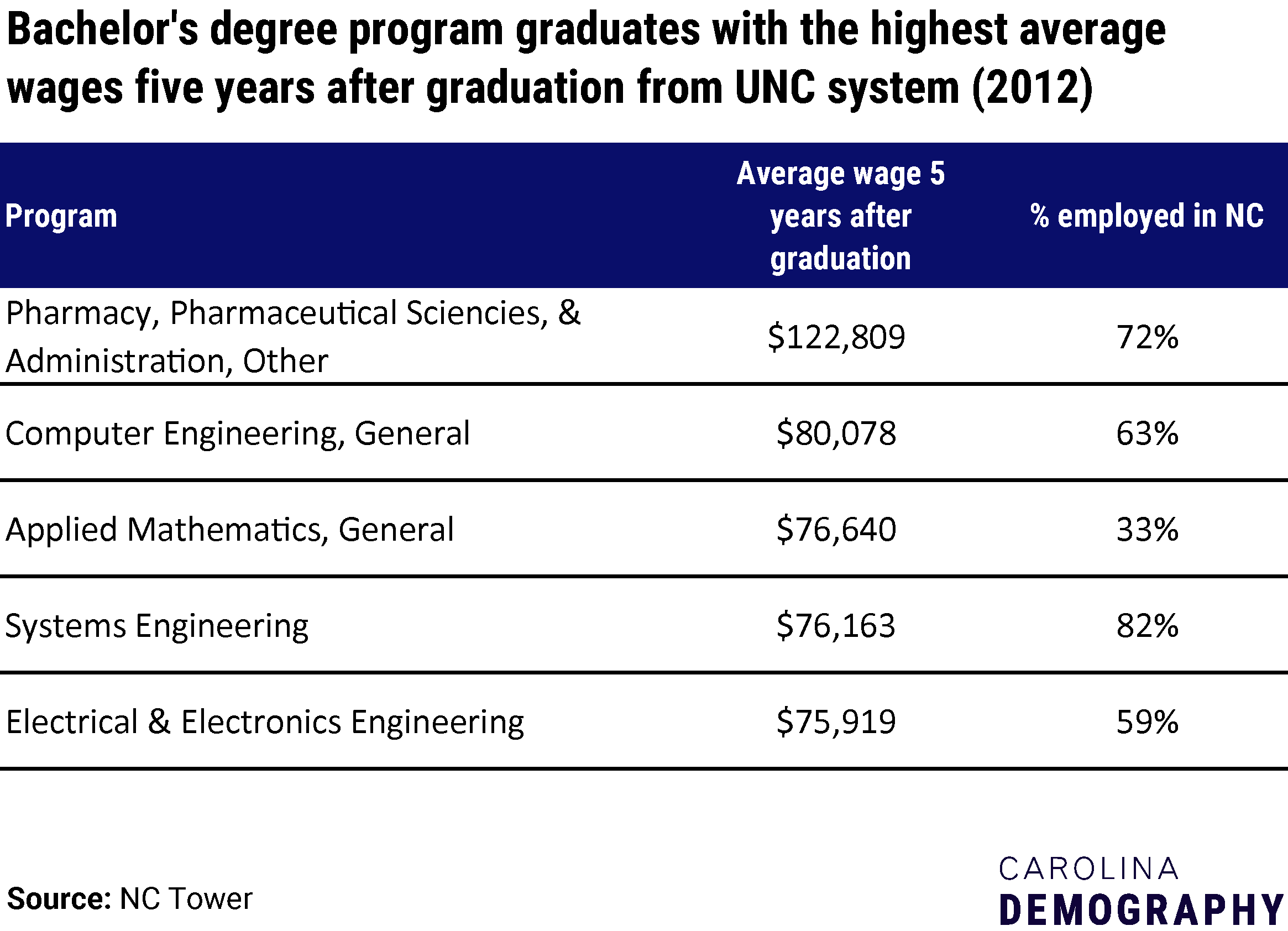Which NC undergraduate degree program graduates have the highest average wages after five years?
A look at the data

Last week, we highlighted the programs of study where NC Community College graduates were making the highest average annual wages five years after graduation, as well as the percentage employed who graduated from that program. This week, we’re doing the same thing for UNC system graduates.
This data comes from the NC Tower database, maintained by NC Department of Commerce, which provides aggregate information on degree attainment, programs of study, and wage/employment information from public postsecondary institutions in North Carolina. For the current analysis, we used wage and employment data provided by 2012 UNC system graduates with Bachelor’s degrees five years post-graduation.

As evidenced by the data, Bachelor’s degree graduates with the highest annual average wages graduated with degrees in mathematics, science, and engineering. In addition, between 33% and 82% of graduates from these programs were employed in North Carolina 5 years after graduation. While salary and employment data related to degree program is important when making a career decision, it does not tell you what specific occupations or jobs graduates with certain degrees obtain, the growth potential among those occupations, or where the jobs are located. The NC Department of Commerce provides additional industry and occupational projection information, such as regional Star Jobs reports, that can provide information on promising occupations within a region.
The data initially published in this post inadvertently included graduate degree recipients with undergraduate degree recipients. This has since been corrected.
Need help understanding population change and its impacts on your community or business? Carolina Demography offers demographic research tailored to your needs.
Contact us today for a free initial consultation.
Contact UsCategories: Education, NC in Focus
Tags: colleges and universities, educational attainment, North Carolina

The Center for Women’s Health Research (CWHR) at the University of North Carolina School of Medicine released the 12th edition of our North Carolina Women’s Health Report Card on May 9, 2022. This document is a progress report on the…

Dr. Krista Perreira is a health economist who studies disparities in health, education, and economic well-being. In collaboration with the Urban Institute, she recently co-led a study funded by the Kate B. Reynolds Foundation to study barriers to access to…

Our material helped the NC Local News Lab Fund better understand and then prioritize their funding to better serve existing and future grant recipients in North Carolina. The North Carolina Local News Lab Fund was established in 2017 to strengthen…
Your support is critical to our mission of measuring, understanding, and predicting population change and its impact. Donate to Carolina Demography today.